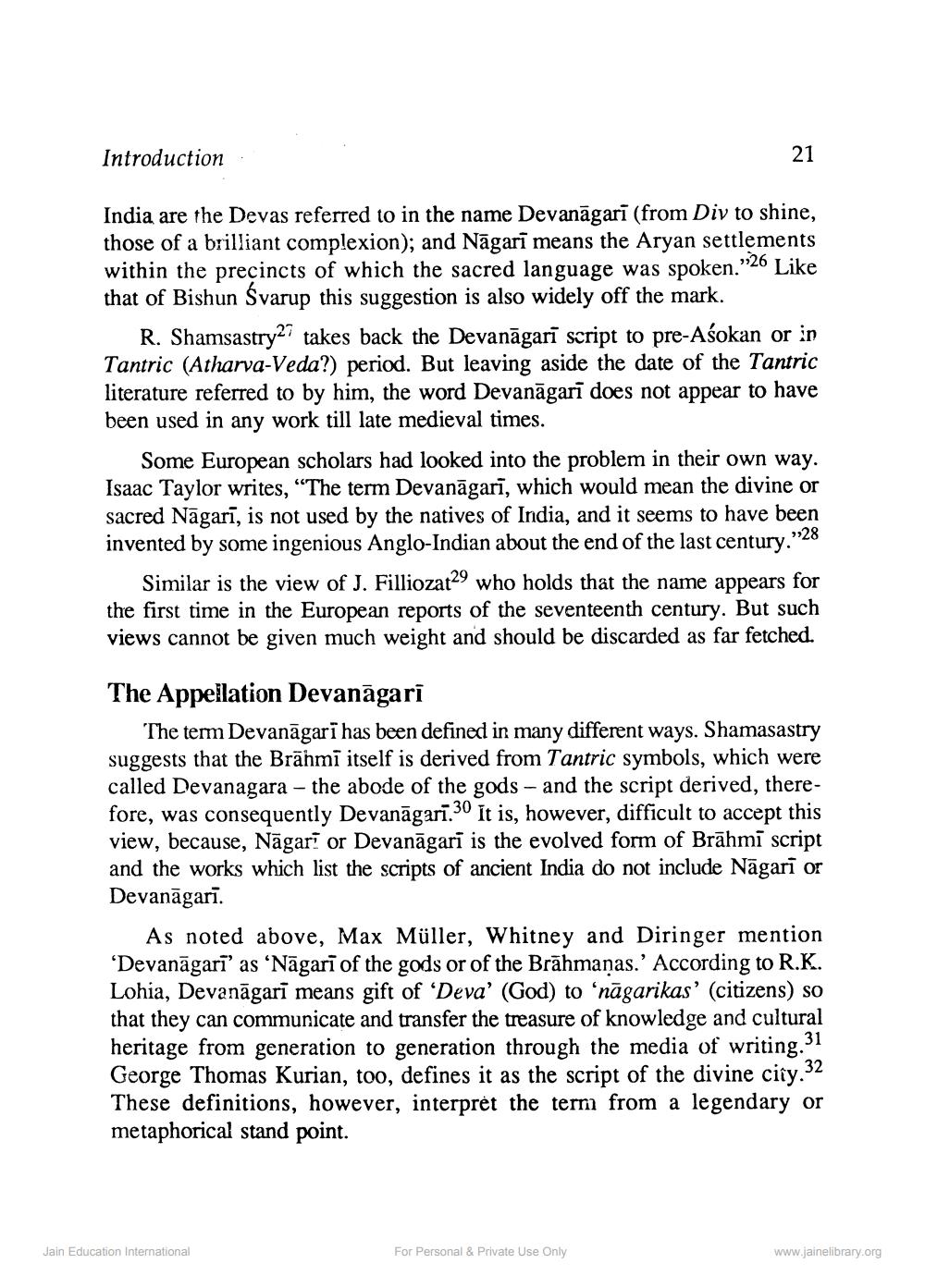________________
Introduction
21
India are the Devas referred to in the name Devanāgari (from Div to shine, those of a brilliant complexion); and Nāgari means the Aryan settlements within the precincts of which the sacred language was spoken."26 Like that of Bishun Svarup this suggestion is also widely off the mark.
R. Shamsastry27 takes back the Devanāgarī script to pre-Asokan or in Tantric (Atharva-Veda?) period. But leaving aside the date of the Tantric literature referred to by him, the word Devanāgari does not appear to have been used in any work till late medieval times.
Some European scholars had looked into the problem in their own way. Isaac Taylor writes, "The term Devanāgarī, which would mean the divine or sacred Nagarī, is not used by the natives of India, and it seems to have been invented by some ingenious Anglo-Indian about the end of the last century."28
Similar is the view of J. Filliozat29 who holds that the name appears for the first time in the European reports of the seventeenth century. But such views cannot be given much weight and should be discarded as far fetched.
The Appellation Devanāgari
The term Devanāgarī has been defined in many different ways. Shamasastry suggests that the Brāhmi itself is derived from Tantric symbols, which were called Devanagara - the abode of the gods - and the script derived, therefore, was consequently Devanagarī.30 it is, however, difficult to accept this view, because, Nāgar or Devanāgari is the evolved form of Brāhmi script and the works which list the scripts of ancient India do not include Nāgarī or Devanāgarī.
As noted above, Max Müller, Whitney and Diringer mention ‘Devanāgarī as ‘Nāgarī of the gods or of the Brāhmaṇas.' According to R.K. Lohia, Devanāgarī means gift of 'Deva' (God) to ‘nāgarikas' (citizens) so that they can communicate and transfer the treasure of knowledge and cultural heritage from generation to generation through the media of writing." George Thomas Kurian, too, defines it as the script of the divine city. 32 These definitions, however, interpret the term from a legendary or metaphorical stand point.
Jain Education International
For Personal & Private Use Only
www.jainelibrary.org




